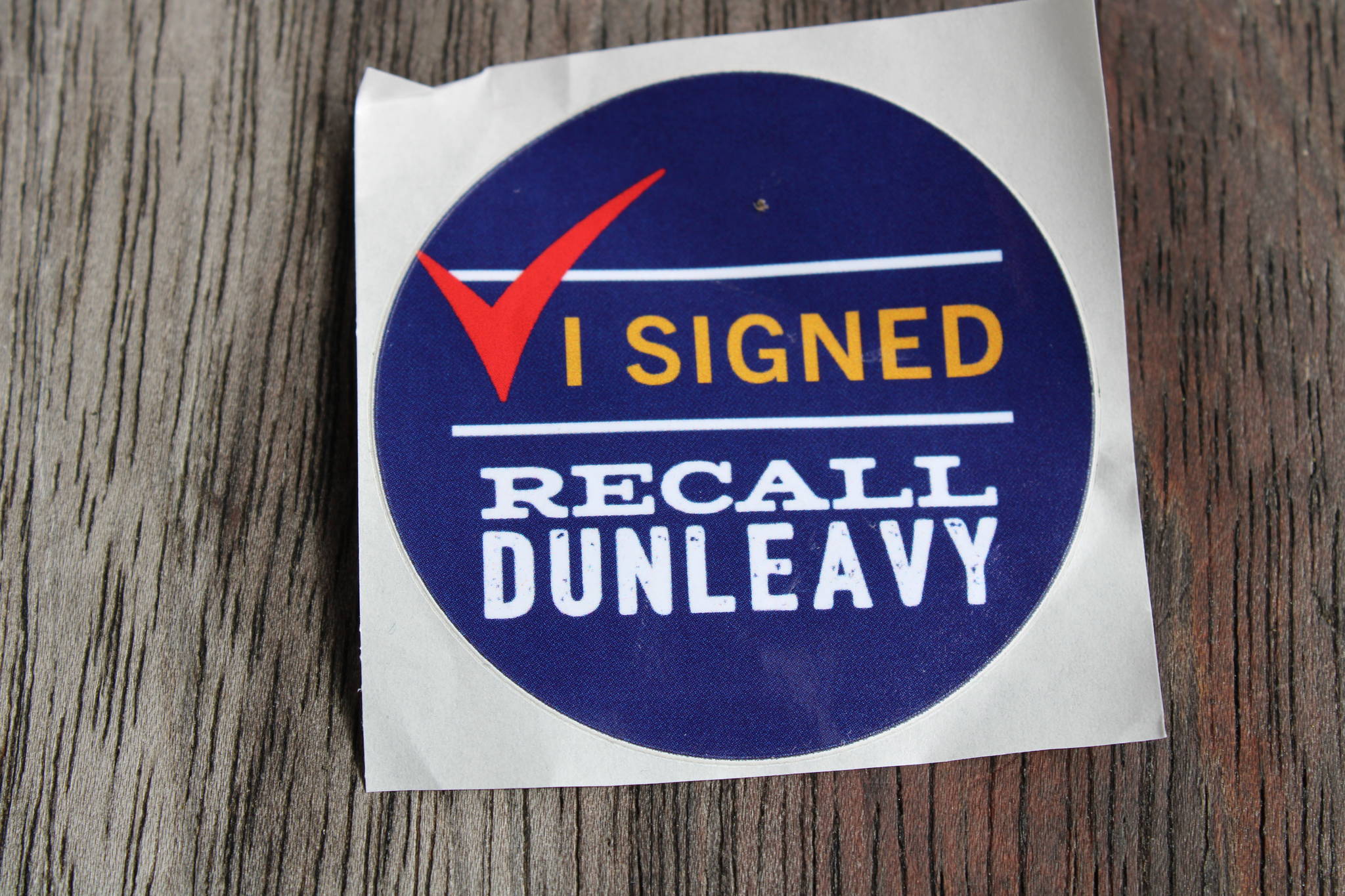By Win Gruening
As a political opposition group renews its effort to gain sufficient signatures to force a recall of Gov. Mike Dunleavy, one can’t help but question their end game. The stated objective is to unseat the governor before the next statewide election, but the effort has devolved into a dark money campaign to hijack Alaska’s recall statutes to discredit the governor at every opportunity.
What if the Recall Dunleavy group has no intention of forcing a special election? Instead, what if it is using the recall to influence the 2022 regular election with anonymous donors thereby avoiding pesky APOC disclosure rules? If so, recall advocates should be careful what they wish for.
While recall statutes vary from state to state, in Alaska, there are four acceptable grounds for recall: lack of fitness, incompetence, neglect of duties or corruption. A recall, therefore, provides a remedy to remove elected officials who commit serious crimes or who are unwilling or incapable of fulfilling their constitutional duties. Alaskan courts have previously held that grounds for recall must be substantive, not just technical or procedural, and that disagreement with an elected official’s policies is not a valid basis for recall.
Yet, courts have been loath to interpret potential ballot issues too strictly. This has resulted in recalls allowed to proceed for even the most minor transgressions.
Recall organizers cite over 50 reasons to recall the governor on their website. Only a handful remotely relate to the ones listed in their official recall application. Most aren’t legally permissible reasons, but rather partisan talking points for a political campaign opposing the Governor’s past and proposed budget cuts.
Most telling, however, is that their website name, “RecallDunleavy.org”, was reserved barely 60 days after Dunleavy was sworn in and 11 days before Dunleavy officially announced his amended budget on February 13, 2019. None of the actions used as grounds for recall had yet occurred.
This effort was a recall waiting for a reason, not a reason for a recall. It has subsequently been transformed into a do-over of the 2018 gubernatorial campaign with blatantly political positions used as rationale why voters should sign the recall petition.
But unlike a legitimate political campaign, there’s no way to know who’s funding it. A loophole in campaign finance law means there’s no requirement to disclose the names of financial supporters, or how much money is being contributed or spent during the recall signature gathering phase. Their recall/political campaign can continue unabated, unregulated, and un-transparent until signatures are submitted to the State. Theoretically, this could last up until their legally mandated deadline – 6 months prior to the end of Dunleavy’s term.
That’s certainly one way to wage an underground campaign against your opponent. But, what’s good for the goose is good for the gander.
As noted in Andrew Jensen’s opinion piece in the Alaska Journal of Commerce, there’s a certain poetic justice in that a court used similar logic in approving a recall petition launched against Felix Rivera, an uber-liberal Anchorage assembly member.
The superficial technicality used to justify the Rivera recall — allowing 17 people instead of 15 inside Assembly Chambers — mirrors the ludicrous legal basis for the Dunleavy recall.
Hopefully, the Legislature will tighten the recall statutes in the future — specifically exempting minor lapses and requiring more disclosure. For now, at least, apparently, they are being applied equally regardless of politics.
But there’s a larger lesson here. Much like Democratic Party’s threats to end the congressional filibuster or pack the Supreme Court, opening Pandora’s Box with these kinds of questionable tactics has a way of coming back to haunt their creator.
Meanwhile, amid the political mumbo-jumbo, the real losers are Alaskans who see more pressing issues on the horizon. State government must tackle a huge budget deficit, a devastated economy and a safe resolution to the pandemic.
Regardless of political persuasion, can we agree that transparency matters, and unregulated political campaigns funded by dark money are dangerous, undemocratic, and simply not credible?
The dubious pretexts used to justify these recalls distract from the real challenges facing our state. The political issues raised are more appropriately decided by voters in the light of day when officials face reelection.
• Win Gruening retired as the senior vice president in charge of business banking for Key Bank in 2012. He was born and raised in Juneau and is active in community affairs as a 30-plus year member of Juneau Downtown Rotary Club and has been involved in various local and statewide organizations. Columns, My Turns and Letters to the Editor represent the view of the author, not the view of the Juneau Empire. Have something to say? Here’s how to submit a My Turn or letter.

